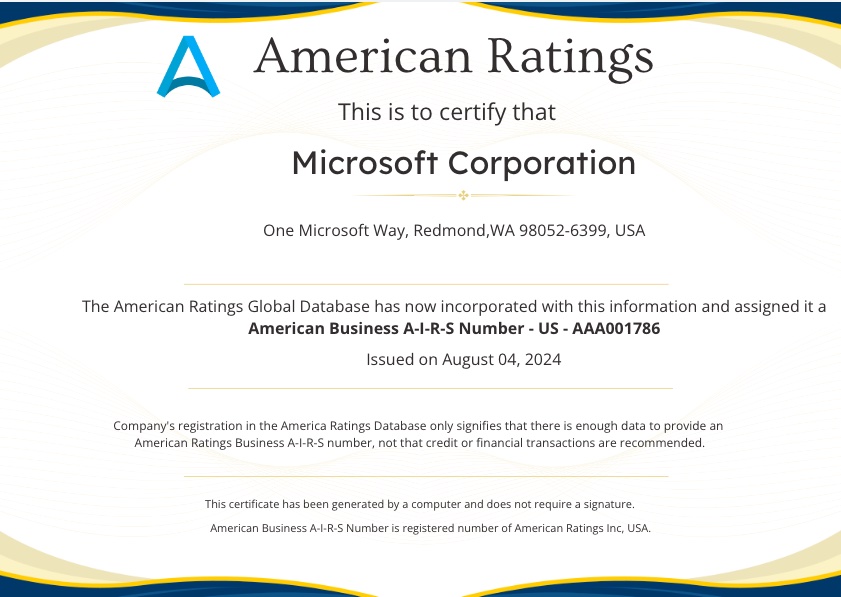Vendor Management System – Web API – American Business A-I-R-S Number/ D-U-N-S Number – what is mobile device management vendors

What is American Business A-I-R-S Number – Business Verification Code Web API?
Web API is provided by American Ratings through which any entity can integrate and verify their Vendor or Suppliers Online
Advantages of Business Verification Code Web API
- Verify all your Client/Supplier/Vendor through online Web API integerate with ERP / CRM / Solution
- Know the updated Client/Supplier/Vendor address, contact details & social networks
- Give Business Contracts to Active Client/Supplier/Vendor
- Know status of any fraud/black listed Client/Supplier/Vendor
- Use Business AIRS Number OTP details in your online vendor registration form
- All Vendor/Supplier/Client Registration Unique ID Renewal Covered
- All Vendor/Supplier/Client Registration Compliance Support
- Web API to verify your Vendor/Supplier/Client Registration online
- Vendor/Supplier/Client Portal – 24x7x365 Support
- Dedicated Account Manager Assigned to your firm
Verifying a vendor / supplier, whether for APIs or other products/services for Vendor Management System, is crucial to ensure quality, reliability, and compliance. Here’s a structured approach to supplier verification:
1. Initial Research
- Reputation: Look for reviews, ratings, and feedback from other clients. Check forums, review sites, and industry reports.
- Experience: Assess the supplier’s experience in the industry. Longevity and a solid track record are positive indicators.
2. Legal and Financial Stability
- Business Registration: Verify that the supplier is a legally registered entity. This can often be done through national or regional business registries.
- Financial Health: Review financial statements, credit reports, and other financial data to ensure the supplier is financially stable.
3. Quality Assurance
- Certifications: Check for relevant quality certifications (e.g., ISO 9001) that indicate adherence to industry standards.
- Quality Control Processes: Understand the supplier’s quality control processes and procedures.
4. Security and Compliance
- Data Security: For API vendors, ensure they have robust security measures in place, such as encryption, secure authentication, and regular security audits.
- Compliance: Ensure the supplier complies with relevant industry regulations and standards (e.g., GDPR for data protection).
5. Technical Capabilities
- Infrastructure: Assess the supplier’s technical infrastructure to ensure it can support your needs.
- Scalability: Verify that the supplier can scale their services as your demands grow.
6. Customer Support
- Availability: Check the availability and responsiveness of customer support.
- Support Channels: Ensure there are multiple support channels (e.g., phone, email, chat).
7. Contracts and SLAs
- Service Level Agreements (SLAs): Review SLAs to ensure they meet your performance and reliability requirements.
- Terms and Conditions: Carefully read the terms and conditions, focusing on termination clauses, liability, and dispute resolution.
8. Pilot Testing
- Trial Period: If possible, engage in a pilot testing phase to evaluate the supplier’s products/services in a real-world scenario.
- Performance Evaluation: Monitor performance against your requirements during the trial period.
9. References and Case Studies
- Client References: Request and contact references to get first-hand feedback from other clients.
- Case Studies: Review case studies to understand how the supplier has successfully met other clients’ needs.
10. Site Visits
- On-site Visits: If feasible, conduct site visits to assess the supplier’s operations, facilities, and management practices.
By following these steps, you can systematically verify a supplier to ensure they meet your requirements and can be relied upon for high-quality, secure, and compliant services or products.
